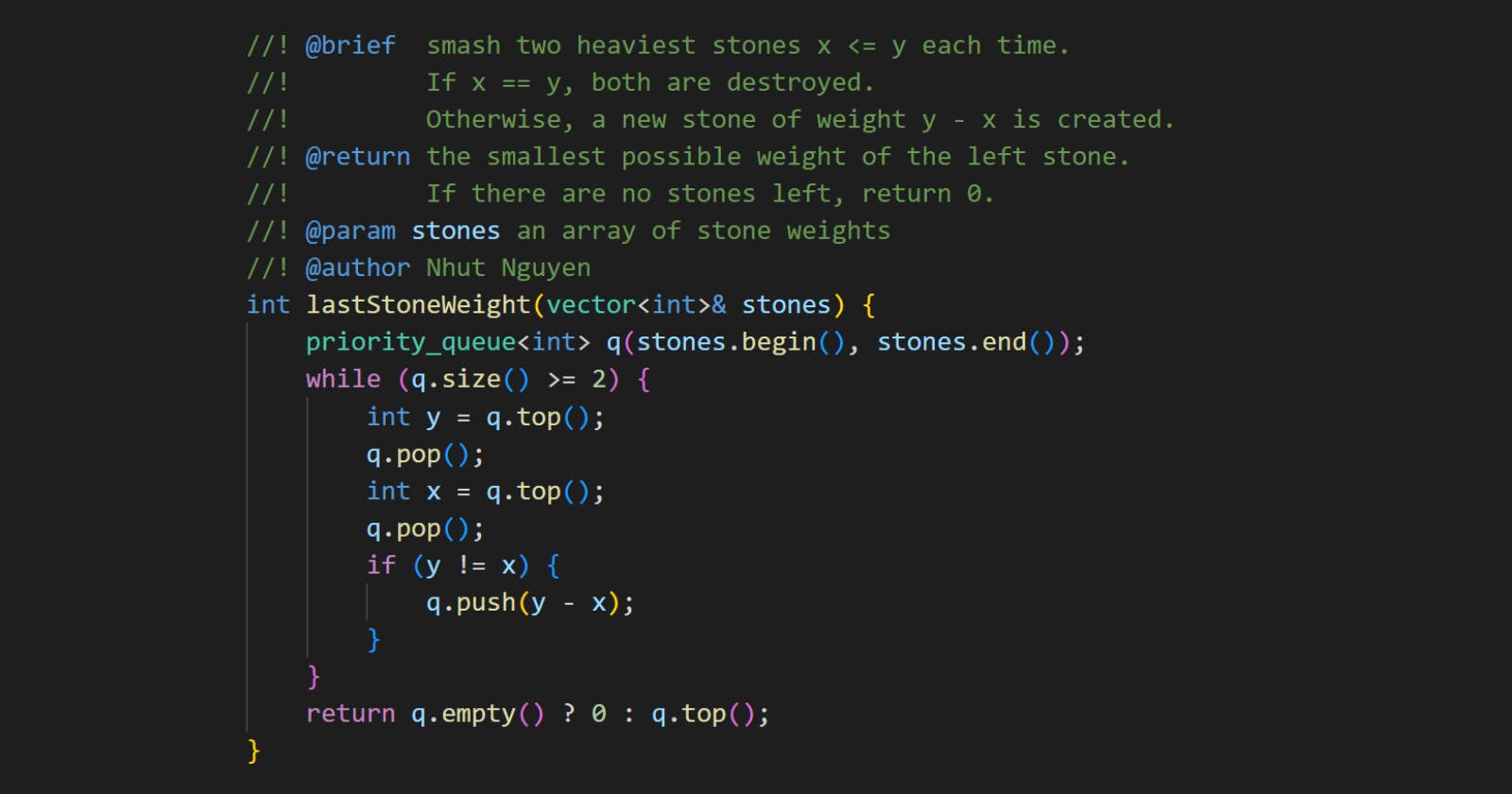Problem statement
You are given an array of integers stones where stones[i] is the weight of the i-th stone.
We are playing a game with the stones. On each turn, we choose the heaviest two stones and smash them together. Suppose the heaviest two stones have weights x and y with x <= y. The result of this smash is:
If
x == y, both stones are destroyed, andIf
x != y, the stone of weightxis destroyed, and the stone of weightyhas new weighty - x.
At the end of the game, there is at most one stone left.
Return the smallest possible weight of the left stone. If there are no stones left, return 0.
Example 1
Input: stones = [2,7,4,1,8,1]
Output: 1
Explanation:
We combine 7 and 8 to get 1, so the array converts to [2,4,1,1,1] then,
we combine 2 and 4 to get 2, so the array converts to [2,1,1,1] then,
we combine 2 and 1 to get 1, so the array converts to [1,1,1] then,
we combine 1 and 1 to get 0, so the array converts to [1] then that's the value of the last stone.
Example 2
Input: stones = [1]
Output: 1
Constraints
1 <= stones.length <= 30.1 <= stones[i] <= 1000.
Solution: Keeping the heaviest stones on top
The only things you want at any time are the two heaviest stones. One way of keeping this condition is by using std::priority_queue.
Code
#include <vector>
#include <iostream>
#include <queue>
using namespace std;
int lastStoneWeight(vector<int>& stones) {
priority_queue<int> q(stones.begin(), stones.end());
while (q.size() >= 2) {
int y = q.top();
q.pop();
int x = q.top();
q.pop();
if (y != x) {
q.push(y - x);
}
}
return q.empty() ? 0 : q.top();
}
int main() {
vector<int> stones{2,7,4,1,8,1};
cout << lastStoneWeight(stones) << endl;
stones = {1};
cout << lastStoneWeight(stones) << endl;
}
Output:
1
1
Complexity
Runtime: worst case
O(NlogN), on averageO(N), whereN = stones.length.Extra space:
O(N).
References
Thanks for reading. Feel free to share your thought about my content and check out my FREE book “10 Classic Coding Challenges”.

